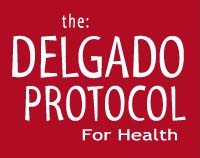The Scientifically Proven Diet That Helps Both Prevent and Reverse Cancer
 An astounding 40 of Americans will be diagnosed with some type of cancer in their lifetime. It’s a pretty scary statistic, but the good news is that cancer for the most part is not a random disease, and you have the power to vastly reduce your risk with lifestyle modifications. In fact, studies show that as much as 90 of all cancers are due to lifestyle factors, and thu`s are potentially preventable. And it is estimated that between 35 and 50 of cancers are directly linked to the food that you eat. Read-on to learn the best diet and most powerful foods for both reducing cancer risk and for helping to reverse certain types of cancer.
An astounding 40 of Americans will be diagnosed with some type of cancer in their lifetime. It’s a pretty scary statistic, but the good news is that cancer for the most part is not a random disease, and you have the power to vastly reduce your risk with lifestyle modifications. In fact, studies show that as much as 90 of all cancers are due to lifestyle factors, and thu`s are potentially preventable. And it is estimated that between 35 and 50 of cancers are directly linked to the food that you eat. Read-on to learn the best diet and most powerful foods for both reducing cancer risk and for helping to reverse certain types of cancer.
The Anti-Cancer Diet
A traditional, wholefoods, plant-based diet is considered the gold standard when it comes to reducing cancer risk. As the name suggests, a plant-based diet simple means that plant foods make up the majority of your diet. Vegetables, fruits, grain products, beans, nuts and seeds are emphasized and animal products are either completely eliminated or vastly restricted. Sugar, alcohol, processed, packaged and fried foods; and fats found in vegetable oils, should also be avoided, because they make cells and tissues unstable and more likely to undergo malignant changes. Evidence shows that various types of cancer (including three of the most common – breast, prostate and colon), can be halted and sometimes even reversed, by simply following this sort of diet.
The Problem with Animal Products
 Animal products are major contributors to cancer for a variety of reasons. They contain unhealthy saturated fats, and carcinogenic (cancer-compounds such as heterocyclic amines (HCA) and polycyclic aromatic hydrocarbons (PAH), which are formed during the cooking or processing of meat. They also contain Insulin-like Growth Factor 1 (IGF-1), which is the most potent growth promoting substance known to biology. Although IGF-1 is found in meat, it is particularly high in dairy products (milk, cheese, ice cream, yoghurt etc.), which are made from the milk of large pregnant bovines. IGF-1 is beneficial for growing baby calves, but it’s extremely problematic for humans. Studies show that IGF-1 has a powerful influence on every stage of cancer – it contributes to the replication of cancerous cells and formation of tumors; it promotes angiogenesis (the formation of blood vessels that feed tumors and help them to both grow and spread); and it also increases resistance to chemotherapeutic agents.
Animal products are major contributors to cancer for a variety of reasons. They contain unhealthy saturated fats, and carcinogenic (cancer-compounds such as heterocyclic amines (HCA) and polycyclic aromatic hydrocarbons (PAH), which are formed during the cooking or processing of meat. They also contain Insulin-like Growth Factor 1 (IGF-1), which is the most potent growth promoting substance known to biology. Although IGF-1 is found in meat, it is particularly high in dairy products (milk, cheese, ice cream, yoghurt etc.), which are made from the milk of large pregnant bovines. IGF-1 is beneficial for growing baby calves, but it’s extremely problematic for humans. Studies show that IGF-1 has a powerful influence on every stage of cancer – it contributes to the replication of cancerous cells and formation of tumors; it promotes angiogenesis (the formation of blood vessels that feed tumors and help them to both grow and spread); and it also increases resistance to chemotherapeutic agents.
Perhaps even more problematic however, is the high amounts of estrogen that animal products contain. Hormonal cancers such as breast cancer and prostate cancer, are driven by estrogens and androgens and animal products are loaded with estrogens, and estrogenic pesticides and hormones. Consuming them increases toxic estrogen levels in the body, vastly increasing breast and prostate cancer risk.
Additional Benefits of a Plant-Based Diet
 By eating mostly plant foods, you automatically reduce your intake of both IGF-1 and estrogen. A plant-based diet is also beneficial for reducing cancer because it provides you with a variety of cancer-fighting vitamins, minerals and phytonutrients that help to stabilize the cell membranes and prevent the replication of cancer-causing cells. In fact, research has linked plant-based foods with a reduced risk for most all types of cancer. Cruciferous veggies such as broccoli, cauliflower, Brussels sprouts and kale are particularly helpful for reducing mouth, esophagus and stomach cancer. Tomatoes, pink grapefruit and watermelon are likely beneficial for reducing the risk of prostate and stomach cancer, due to a special nutrient they contain called lycopene. Berries may help reduce the risk for skin, bladder, lung, esophagus and breast cancer. The carotenoids in dark, leafy, green veggies may inhibit the growth of certain types of breast cancer cells, skin cancer cells, lung cancer and stomach cancer. Garlic may help slow or stop the growth of tumors in prostate, bladder, colon and stomach tissue. And the high fiber content of beans and legumes may help lower the risk for breast and colon cancer.
By eating mostly plant foods, you automatically reduce your intake of both IGF-1 and estrogen. A plant-based diet is also beneficial for reducing cancer because it provides you with a variety of cancer-fighting vitamins, minerals and phytonutrients that help to stabilize the cell membranes and prevent the replication of cancer-causing cells. In fact, research has linked plant-based foods with a reduced risk for most all types of cancer. Cruciferous veggies such as broccoli, cauliflower, Brussels sprouts and kale are particularly helpful for reducing mouth, esophagus and stomach cancer. Tomatoes, pink grapefruit and watermelon are likely beneficial for reducing the risk of prostate and stomach cancer, due to a special nutrient they contain called lycopene. Berries may help reduce the risk for skin, bladder, lung, esophagus and breast cancer. The carotenoids in dark, leafy, green veggies may inhibit the growth of certain types of breast cancer cells, skin cancer cells, lung cancer and stomach cancer. Garlic may help slow or stop the growth of tumors in prostate, bladder, colon and stomach tissue. And the high fiber content of beans and legumes may help lower the risk for breast and colon cancer.
A plant-based diet is clearly a very powerful weapon for both preventing and reversing many types of cancer. It’s time we stop playing victims to the cancer ‘lottery’ and actively reduce our risk through lifestyle modifications. In addition to consuming a plant-based diet, you should also optimize your vitamin D levels, obtain and maintain a healthy body weight, exercise regular, sleep well, and actively reduce stress levels. Your emotions also play a big role in your risk not only for cancer but also for a host of other chronic diseases, so address any underlying negative emotions through activities such as journaling, talk therapy, Emotional Freedom Technique (EFT), meditation, hypnosis, and/or daily positive affirmations.





